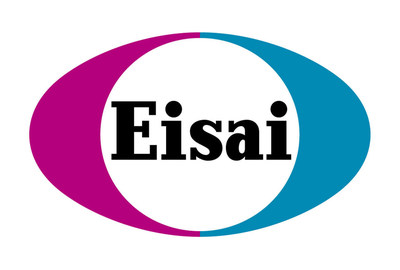Eisai announced today that new study results on its in-house discovered and developed anticancer agent eribulin mesylate (marketed as HALAVEN®) will be presented during the 42nd San Antonio Breast Cancer Symposium (SABCS).
|
WOODCLIFF LAKE, N.J., Dec. 10, 2019 /PRNewswire/ -- Eisai announced today that new study results on its in-house discovered and developed anticancer agent eribulin mesylate (marketed as HALAVEN®) will be presented during the 42nd San Antonio Breast Cancer Symposium (SABCS). The symposium will be held from December 10-14, 2019, in San Antonio, Texas.
Eisai is presenting a total of five abstracts at this year's SABCS. Presentations of note will include:
"We continuously research our medicines to uncover new information that may help the oncology community better understand treatment choices for people living with metastatic breast cancer (MBC), and we look forward to sharing these updates at this year's San Antonio Breast Cancer Symposium," said Dr. Takashi Owa, Chief Medicine Creation Officer and Chief Discovery Officer at Eisai Inc. "We are particularly excited about our continued translational research to better understand how eribulin changes the microenvironment of cancer cells in patients living with MBC." This release discusses investigational uses for FDA-approved products. It is not intended to convey conclusions about efficacy and safety. There is no guarantee that any investigational uses of FDA-approved products will successfully complete clinical development or gain FDA approval. Eisai presentations at this year's SABCS:
About Metastatic Breast Cancer About HALAVEN® (eribulin mesylate) Injection
Discovered and developed by Eisai, eribulin is a synthetic analog of halichondrin B, a natural product that was isolated from the marine sponge Halichondria okadai. First in the halichondrin class, eribulin is a microtubule dynamics inhibitor. Eribulin is believed to work primarily via a tubulin-based mechanism that causes prolonged and irreversible mitotic blockage, ultimately leading to apoptotic cell death. Additionally, in preclinical studies of human breast cancer, eribulin demonstrated complex effects on the tumor biology of surviving cancer cells, including increases in vascular perfusion resulting in reduced tumor hypoxia, and changes in the expression of genes in tumor specimens associated with a change in phenotype, promoting the epithelial phenotype, opposing the mesenchymal phenotype. Eribulin has also been shown to decrease the migration and invasiveness of human breast cancer cells. Important Safety Information Warnings and Precautions Peripheral Neuropathy: Grade 3 peripheral neuropathy occurred in 8% of patients with mBC (Grade 4=0.4%) and 22% developed a new or worsening neuropathy that had not recovered within a median follow-up duration of 269 days (range 25-662 days). Neuropathy lasting >1 year occurred in 5% of patients with mBC. Grade 3 peripheral neuropathy occurred in 3.1% of patients with liposarcoma and leiomyosarcoma receiving HALAVEN and neuropathy lasting more than 60 days occurred in 58% (38/65) of patients who had neuropathy at the last treatment visit. Patients should be monitored for signs of peripheral motor and sensory neuropathy. Withhold HALAVEN in patients who experience Grade 3 or 4 peripheral neuropathy until resolution to Grade 2 or less. Embryo-Fetal Toxicity: HALAVEN can cause fetal harm when administered to a pregnant woman. Advise females of reproductive potential to use effective contraception during treatment with HALAVEN and for at least 2 weeks following the final dose. Advise males with female partners of reproductive potential to use effective contraception during treatment with HALAVEN and for 3.5 months following the final dose. QT Prolongation: Monitor for prolonged QT intervals in patients with congestive heart failure, bradyarrhythmias, drugs known to prolong the QT interval, and electrolyte abnormalities. Correct hypokalemia or hypomagnesemia prior to initiating HALAVEN and monitor these electrolytes periodically during therapy. Avoid in patients with congenital long QT syndrome. Adverse Reactions In patients with liposarcoma and leiomyosarcoma receiving HALAVEN, the most common adverse reactions (≥25%) reported in patients receiving HALAVEN were fatigue (62%), nausea (41%), alopecia (35%), constipation (32%), peripheral neuropathy (29%), abdominal pain (29%), and pyrexia (28%). The most common (≥5%) Grade 3-4 laboratory abnormalities reported in patients receiving HALAVEN were neutropenia (32%), hypokalemia (5.4%), and hypocalcemia (5%). Neutropenia (4.9%) and pyrexia (4.5%) were the most common serious adverse reactions. The most common adverse reactions resulting in discontinuation were fatigue and thrombocytopenia (0.9% each). Use in Specific Populations Hepatic and Renal Impairment: A reduction in starting dose is recommended for patients with mild or moderate hepatic impairment and/or moderate or severe renal impairment. About Eisai Inc. Eisai is a fully integrated pharmaceutical business that operates in two global business groups: oncology and neurology (dementia-related diseases and neurodegenerative diseases). Our U.S. headquarters, commercial and clinical development organizations are located in New Jersey; our discovery labs are in Massachusetts and Pennsylvania; and our global demand chain organization resides in Maryland and North Carolina. To learn more about Eisai Inc., please visit us at www.eisai.com/US and follow us on Twitter and LinkedIn. 1 SEER. Cancer Stat Facts: Female Breast Cancer. 2019. Available at: https://seer.cancer.gov/statfacts/html/breast.html. Accessed November 6, 2019.
SOURCE Eisai Inc. |





